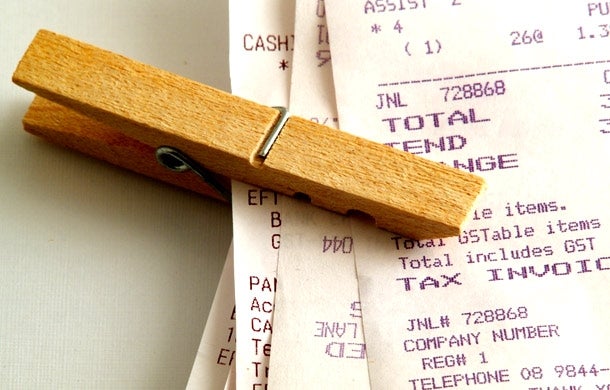
Many Americans often ignore or quickly say "No" when asked whether they want a receipt, but not small-business owners. Is this because they spend hours upon hours organizing them during the year and look forward to turning them into their accountant? Um, not necessarily. Savvy business owners simply know how to keep receipts because if they don't, their tax return could be in peril. The reality is: Receipts are audit protection and we have to take that seriously.
This past year Betty Ong, a real-estate broker in Northern California, was another casualty of tax court and lost to the Internal Revenue Service. Ong deducted thousands of dollars for travel, meals, entertainment, automobile and cellphone expenses, but like many small-business owners, didn't keep the strict substantiation requirements of the IRS. While Ong was able to produce books and records proving the expenses were incurred, she failed to show receipts, notes and documentation that the expenses were business related. In the words of the court, the only evidence she presented to support the business purposes of her expenses was her "own broad self-serving testimony and uncorroborated notes."
Sadly, Ong is just one of many business owners who don't keep proper records and lose in audits or tax court every year. The reality is that you may be entitled to these deductions, but if you don't follow the rules, you could be left out in the cold. Here are some basic tips:
1. Keep all receipts.
This point cannot be overstated. I was recently helping a client with an audit recently in which the IRS agent asked for every receipt to support my client's travel expenses taken during the year. It's true that you could argue what's called "the Cohen Rule," that you can use "other credible evidence," or rely on IRS Publication 463 which says that you don't need to keep receipts for expenses under $75, but why get into a fight? Arguing with the IRS can cost you a lot more time and money than just keeping your receipts.
Read more from Entrepreneur